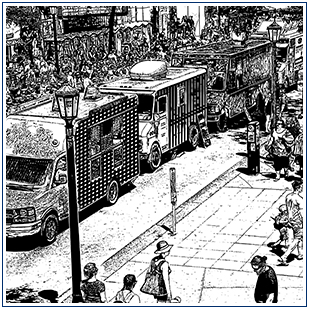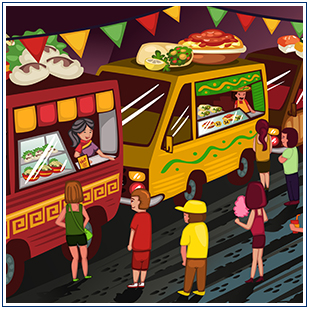
The mobile food truck industry began to explode in 2008 and 2009, though has a history dating back long before the modern food truck hit the streets. In the late 1800, there were a variety of unique mobile food vendors that began operations. Chuckwagons that accompanied cattle ranchers on the prairie are an example of the first mobile food vendors. Another example of early mobile vendors were the famous hot dog stands of New York. Common since the 60s, the lunchera was a unique way to get food to workers in California.
Learn More









